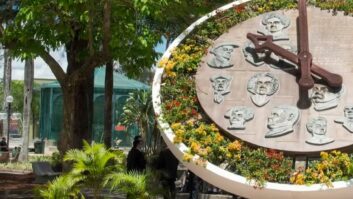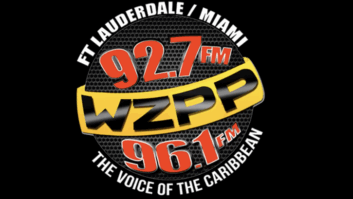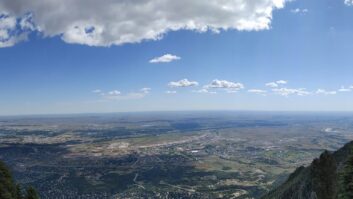Comments by Womble Carlyle attorney John Garziglia in the article “FM Translator Roulette Begins” (Radio World, March 13) sure set off some sparks. Here is a smattering of what we’ve gathered.
The final commentary below is from Garziglia, in response.
LPFMs Accessible to Underserved Populations
My letter is in response to a quotation in Radio World stating that low-power FM broadcasters are merely hobbyists who are playing at radio. I am one of the original petitioners to the FCC for the LPFM radio service (Docket 99-25).
The statement about LPFM playing with radio is completely incorrect. LPFM operators are serious radio broadcasters with a serious interest in serving their local communities. One of the most important aspects of LPFM radio is that it allows minority communities to have their own radio stations that can be used for community building.
For example, minority people living in the inner city can use LPFM stations to bring community news and events to their own neighborhoods. This opportunity supports the constitutional law’s focus on equal opportunity rights for all Americans.
Radio is not just for economic elites to make large sums of money. Radio is also for minorities to grow and accomplish a better status within the nation. Also, few women own radio stations today. In the future, women and minorities can move into radio ownership, starting with LPFM radio.
In addition, new producers of program content can access the airwaves through LPFM. Members of the community can participate in the development and presentation of programs. Radio broadcasting can be for everyone in the United States, not just a few.
Nickolaus E. Leggett
Retired Technical Writer
Alcatel Data Networks
Reston, Va.
Incendiary Quote Was a Poor Choice
I was a little surprised at the line accusing LPFM applicants of being “mostly hobby broadcasters that would like to play radio with an LPFM station.”
I realize it was a quote, but I think including it in the article did very little to calm the waters. Quite the opposite, in fact.
While I’m sure there probably are some LPFM applicants that are little more than hobby broadcasters, most whom I’ve met are quite serious about what they are doing. At best, I thought the comment was a cheap shot.
Since I was the founder of one of the first LPFM stations to be awarded a construction permit in Texas, I think I can speak from some experience. At the time, most LPFM applicants were quite serious in their quest to serve their community, by offering programming that was not available in their area.
I doubt that has changed.
Throughout the initial application process, I got to know many (LPFM applicants/operators). Over the next 10 years or so, I again got to know quite a few people who were operating LPFM stations. I’ve found very few “radio wannabes.” In fact, several of the leaders of the movement were experienced radio veterans.
Their product is as professional as anyone’s. Imagine that.
My old LPFM station, KZQX(LP), became successful enough to acquire a commercial FM frequency. Radio World even wrote a nice article about our transformation (“From LPFM to Commercial FM: It’s Complicated,” August 2011).
Since that time, we’ve acquired a local AM station and a couple of FM translators to go with it. The reason we were able to do that is because we had enough listeners to make it possible. There is demand for our programming.
Everyone has to start somewhere. Rather than oppose LPFM, commercial broadcasters (myself included) should welcome it, realizing that it can be the incubator for the next generation of radio broadcasters. Your new employees have to come from somewhere.
If the FCC is really serious about localism in radio, they should allow translators to originate local programming. That would be advantageous to existing commercial broadcasters who could use them to super-serve their communities.
It would allow LPFM advocates a way to inject localism into the airwaves, maybe at enough power to garner a reasonable audience. Even the satellite translator broadcasters could benefit by leasing time to local operators.
There could be a lot of winners in such a scenario. Allowing daytime AMs to broadcast overnight on their translators has already established a de facto commercial LPFM service. Why not just even out the playing field?
Chuck Conrad
General Manager, Owner
KZQX(FM), KDOK(AM/FM)
Kilgore, Texas
You Don’t Have to Like LPFM, But Respect It
Over the years, I have worked with John Garziglia to persuade the FCC to allow locally originated programming on translators. And I have worked against John by pressing the FCC to allow LPFM stations below 50 watts.
Even where we have disagreed, our encounters have been consistently courteous and respectful. In his latest statement, however, John has unfairly trivialized the value of volunteer service at community radio stations and has inaccurately understated the level of professional radio expertise in the LPFM movement.
I cannot speak for all LPFM advocacy groups, and especially not for Prometheus Radio Project, which has its own distinct political agenda. I am nevertheless co-founder and current president of the Amherst Alliance, as well as attorney for Let the Cities In.
Amherst has been working for LPFM since 1998, while LTCI, focused on expanding urban LPFM, is only four months old.
Within these two groups, I can assure you, calling the average aspiring LPFM broadcaster a “hobbyist” is like calling the deacon of a church a hobbyist. Some of our members have spent years and years, at dozens of hours a week, donating labor to (and even self-subsidizing) Internet radio stations and/or Part 15 AM stations that might be the only local stations in their community.
If this is a “hobby,” so is service as a volunteer firefighter.
Let me add that some of the aspiring LPFM broadcasters, in both Amherst and LTCI, are former “mainstream” radio station personnel. They were forced out of “mainstream” radio by the reckless media consolidation that Congress and the FCC have permitted since the Clinton Administration. Now these individuals are “finding their way” back into broadcasting, through a new path that is open to them only because they, and other activists, went out and fought for it.
John Garziglia has the right to dislike LPFM if he wishes, but he should at least acknowledge and respect the tremendous human talent that is present in groups like Amherst and LTCI.
Don Schellhardt
President
The Amherst Alliance
Waterbury, Conn.
A Difference in Size, Not Professionalism
I agree with much of the article’s attention given to the fact that the FCC has a real problem on its hands, having to deal with issues of fair use of available FM spectrum. However, I was very offended and, yes, even angered by the comments made by John Garziglia regarding those that might seek to get an LPFM station.
His commentary demonstrates the ignorance of those who simply oppose this service as being a nuisance to commercial radio.
His statements that somehow the whole FM band is being harmed (in favor of a nascent promise of community-based programming from mostly hobby broadcasters that would like to play radio with an LPFM station) indicates to me that he has never meet an LPFM owner, or taken the time to see what is involved in running these operations.
It may be true that some do not do as good a job as they could; however, most LPFM stations provide a community service to their areas, broadcasting local events and news not even touched by the commercial stations.
I have been in broadcasting for 30 years, and have owned two full-power stations. The last 10 years have been spent running LPFMs. The only real difference between a large commercial station and a well-run LPFM is the size of the transmitter. From the exciter back to the control board, the work is the same.
In fact, LPFM owners have several disadvantages that will increase the workload. We are faced with the fact that we have to work much harder to get the cash flow to keep the station running, as well of the constant threat of being displaced by a full-power upgrade. In the last 10 years, this has happened to me three times.
And yes, we make a substantial investment in equipment, tower leasing and property. I personally know a number of LPFM broadcasters, and they all take their stations seriously and, I might add, are very community conscious.
During the last election cycle, we interviewed all but two of the local candidates running for office. We have local organizations into the station on a regular basis and run community PSAs. In our market, we are the only station that provides these services, and they all come with no charge.
So my suggestion to Mr. Garziglia is that he get out and meet some of these dedicated people who just want to play radio.
Peter Swartz
General Manager
WEKJ(LP)
Homosassa, Fla.
In New England, We Take LPFM Seriously
I read Randy J. Stine’s “FM Translator Roulette Begins” with interest, but I am concerned about the perception of LPFM as portrayed by Womble Carlyle attorney John Garziglia, who characterized LPFM applicants as “mostly hobby broadcasters that would like to play radio with an LPFM station.”
To the contrary, Public Media of New England Inc., one of those aspiring LPFM broadcasters, is compelled, and believes it is obligated, to provide community news and programming to its core city of Haverhill, with its more than 60,000 residents.
Non-profit Public Media of New England operates the Internet radio station WHAV, which is also relayed by seven public access television stations. Since 2004, WHAV has carried on a local radio tradition of service started by its former terrestrial namesake in 1947.
I imagine the flood of 250-watt AM stations created just after World War II, like WHAV, were similarly looked down upon at the time by some people in the industry.
WHAV’s board and staff are civic-minded individuals motivated by a concern that residents are not receiving adequate information to make life choices, participate effectively in the democratic process or make decisions in their own best interest.
The terrestrial WHAV, and its Haverhill-centric programming, disappeared after being consolidated in a group of stations. Similarly, the once-daily Haverhill Gazette newspaper was reduced to a weekly and its local office finally shuttered last year.
No ill will is intended against these other media, as they have had their own battles to wage. But the fact is that Public Media of New England’s WHAV is now the sole medium to remain based in the city. Online, WHAV operates 24 hours a day, seven days a week, with hourly “Community Spotlight,” local weather and breaking local news. There is also local talk programming and more.
WHAV’s existing Internet and cable operations, however, cannot reach a significant segment of the population that remains without broadband or cable television access. Moreover, radio is the ubiquitous medium of choice during an emergency.
I believe most LPFM applicants share these motivations.
Tim Coco
President
Public Media of New England Inc.
Haverhill, Mass.
Operational Headaches Are More Than a Hobbyist’s
I would love to respond to John Garziglia’s rather broad mischaracterization of LPFM broadcasters. However, as I write this, our community has experienced a very severe storm (which hit March 18), and both of the commercial broadcasters in town have been effectively off-air for several days, leaving only our LPFM, WQJJ(LP), on the air working with emergency management and other local agencies — I simply do not have the time required to respond.
You see, I am too busy “playing hobby radio” by getting news and information out to the homeless and powerless people of our community who are now needing to know where to find shelters and emergency supplies until power (heat during sub-freezing nights) and other utilities are restored so that they can go back home.
As this is the fourth time we have been in just such a situation of being the only station on the air within the past two years, we are hoping that we may eventually convince the local commercial broadcasters that they, too, may eventually want to invest in a generator and a few additional emergency supplies so that they may also be here to operate “in the public interest and necessity.”
The coverage afforded to us as an LPFM is extremely limited, so that we do not interfere with (the income of) the much more community-minded and responsible commercial broadcasters. These are the same commercial broadcasters who claim not to see any financial return from investing in emergency facilities.
At the very least, I am very much hoping to eventually convince two local stations that they do eventually need to invest in functional EAS equipment. This has been an issue for some time now, as their continued belief that “we’ve done just fine without the old version since it was mandated in 1997, by broadcasting a recording of a test at another station, so we’ll do just fine without this new version, too” is a fallacy.
Just a quick thought from someone who is busy “playing hobby radio,” while the local commercial stations are taking some time off while utilities are being restored.
Keith Hammond
General Manager
WQJJ(LP)
Jasper, Ala.
LPFMs Are the True Locals
I take offense to Mr. Garziglia’s generalized statement about LPFM broadcasters being “mostly hobby broadcasters that would like to play radio with an LPFM station.” Where is Mr. Garziglia getting his information?
The earlier paragraph specifically noted that these were his opinions and feelings, not facts. Furthermore, where is it stated that so-called “hobby broadcasters that would want to play radio” don’t have as much right to market share as the big corporate stations?
I would argue that small potential LPFM operators are considerably more focused on their local communities than any 100,000-watt powerhouse. I started in small-market radio and worked my way up to jobs in Los Angeles and I can tell you firsthand that small, local radio stations truly serve their local communities, not always to the expansion of their bottom lines or market share.
I challenge Mr. Garziglia to produce evidence to support his opinions about LPFM operators being “mostly hobby broadcasters.” I would consider that most hobby broadcasters do so either online through services like Nicecast, or Live365 or on “pirate” broadcast frequencies.
LPFM operators are following the same proper procedures and FCC regulations as large, high-power stations. All radio stations must serve the public trust and who does that better?
A giant mega-station that tells its audience that it is local in one town, while being “local” also in another town hundreds of miles away at the same time? No, sir.
LPFM operators face the same challenges and in most cases more challenges than larger stations. Not only do LPFM operators have to continually justify their existence to translator proponents, but they work within the limitations of a non-profit when it comes to underwriting; severely limiting their ability to generate revenue.
These operators have small, sometimes “out-of-pocket” budgets that will never rival the millions generated by huge corporate mega-stations. Yet even facing these disadvantages, LPFM stations survive and, in most cases, thrive in their local community.
Gene Rowley
Contract Pilot
U.S. Army
Deployed to Afghanistan
I Unfairly Took Aim at LPFM Proponents
The following is by John Garziglia, who responded to Don Schellhardt’s letter above.
Don Schellhardt of the LPFM proponent, The Amherst Alliance, shared his letter with me objecting to my quote that characterized some LPFM proponents as “hobby broadcasters.” Don states that I have “unfairly trivialized the value of volunteer service at community radio stations and [have] inaccurately understated the level of professional radio expertise in the LPFM movement.”
Don is right to take issue with my statement. I agree with him. In my zeal to promote the removal of FCC regulatory barriers to enable AM stations that provide superb community-based programming to obtain FM translators, I unfairly took aim at LPFM proponents.
Broadcasters fully laud the community service goals of LPFM proponents. I am thrilled that among LPFM proponents are people who dearly love and believe in over-the-air broadcast radio. As one medium-market independent broadcaster commented to me, LPFM stations may very well be the radio training ground of the future and “if they get really good at it, maybe they are our exit strategy if someday we want to sell.”
The hope of broadcasters is, just as there are now many exemplary public radio stations, that many LPFMs will similarly become great radio stations. The fear, however, is that some LPFMs will become “satellitors” or descend into a chaos reminiscent of CB radio, neither of which would advance the goals of community-based broadcasting.
I fully appreciate the goal of future broadcasters, including LPFM proponents, to have their own radio station. But I do question the single focus of LPFM proponents in larger radio markets to try to obtain interference-creating 10-watt or 50-watt facilities when there is so much of a current opportunity to now reach the radio market with underutilized FM facilities.
The HD2 and HD3 channels that now cover larger communities have suboptimal usage and few listeners. HD2 and HD3 channels are prime candidates for time brokerage types of arrangements for community groups and aspiring broadcasters.
Yet I am aware of few specific instances in which aspiring LPFM broadcasters have approached FM HD stations seeking to broker time on an HD2 or HD3 channel. Yes, there would be a price involved, just as there will be with owning an LPFM station, but the population coverage from an HD2 or HD3 channel would far exceed any LPFM station.
Don mentioned the volunteer firefighter analogy for LPFM broadcasters. Broadcasting, whether commercial or non-commercial, is a business in which the electric, rent and maintenance bills must be paid. Even for volunteer organizations, there are usually payrolls to meet.
A future LPFM broadcaster is kidding herself if she does not think there will be a substantial cost for a major-market LPFM tower space and operational costs. Yes, volunteer firefighters receive no pay. But what must be kept in mind is the cost of the firehouse rent, firehouse infrastructure, fire engines, equipment and insurance, none of which is free, and all of which have cost analogies to any radio station operation even if staffed by volunteers.
In short, LPFM stations, whether dependent upon a few wealthy donors or upon donations from the community-at-large, will need significant revenues to sustain quality operations which, going back to my original comment, will cull out any “hobby broadcasters” in short order.
I encourage existing broadcasters to embrace future LPFM broadcasters who aspire to provide great broadcast programming, both for the good of the community and for the future of broadcasting. I wish Don and his group all of the best in their aspirations to become part of the community of our nation’s great broadcasters.
John Garziglia is a Washington attorney who represents radio broadcasters nationwide. He recently participated on FCC Commissioner Pai’s AM Revitalization Panel at the NAB Show.





